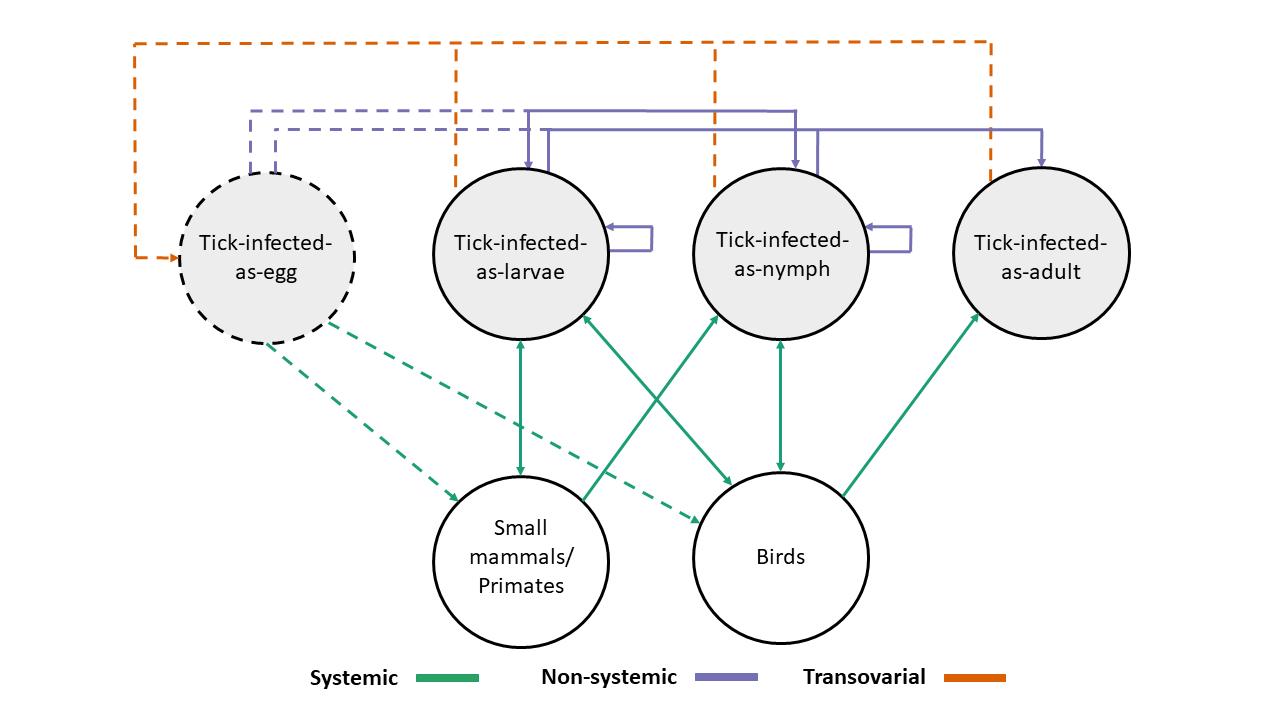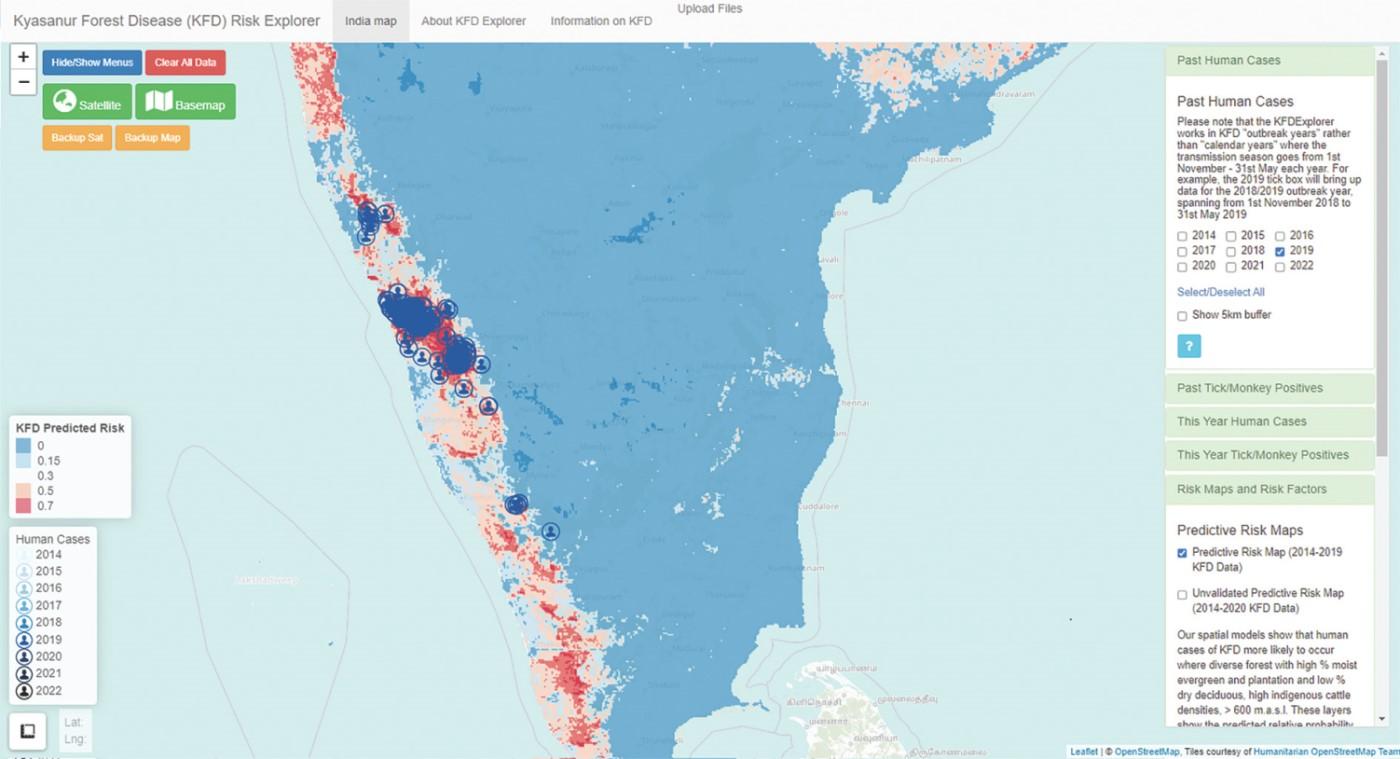Work package 5 integrates understanding and data on social and environmental drivers of risk and vulnerability into predictive models and decision support tools for zoonotic diseases. The models we are developing include both correlative models of historical patterns in human spill-over for focal pathogens and mechanistic models that explicitly capture ecological processes underpinning transmission. We are examining the role of climate change, forest degradation and agricultural intensification in driving changes in risk, and how and why interactions between hosts, vectors and people vary seasonally in and around forests and contribute to vulnerability (Fig.1).

Fig 1. Transmission pathways used in models exploring the maintenance and transmission of Kyasanur Forest Disease

Fig 2. Kyasanur Forest Disease Risk Explorer. A web-based tool allowing users to view areas predicted to be highly suitable for spillover of Kyasanur Forest Disease Virus to humans. Users can also overlay surveillance data for monkeys and ticks as well as infrastructure and landscape features to help guide management.
Leveraging on the IndiaZooRisk co-production process, these models are framed, interpreted and refined with cross-sectoral decision makers and are being integrated into web-based decision support tools to inform interventions (Fig. 2).
Further Reading
Hassall RMJ, Burthe SJ, Schäfer SM, Hartemink N, Purse BV (2023) Using mechanistic models to highlight research priorities for tick-borne zoonotic diseases: Improving our understanding of the ecology and maintenance of Kyasanur Forest Disease in India. PLoS Negl Trop Dis 17(5): e0011300. https://doi.org/10.1371/journal.pntd.0011300
Purse, B. et al. (2023) ‘A One Health Ecosystem Approach for Understanding and Mitigating Spill-Over of Tick-Borne Diseases in India’s Degraded Forests’, One Health Cases. CABI International. https://doi.org/10.1079/onehealthcases.2023.0011